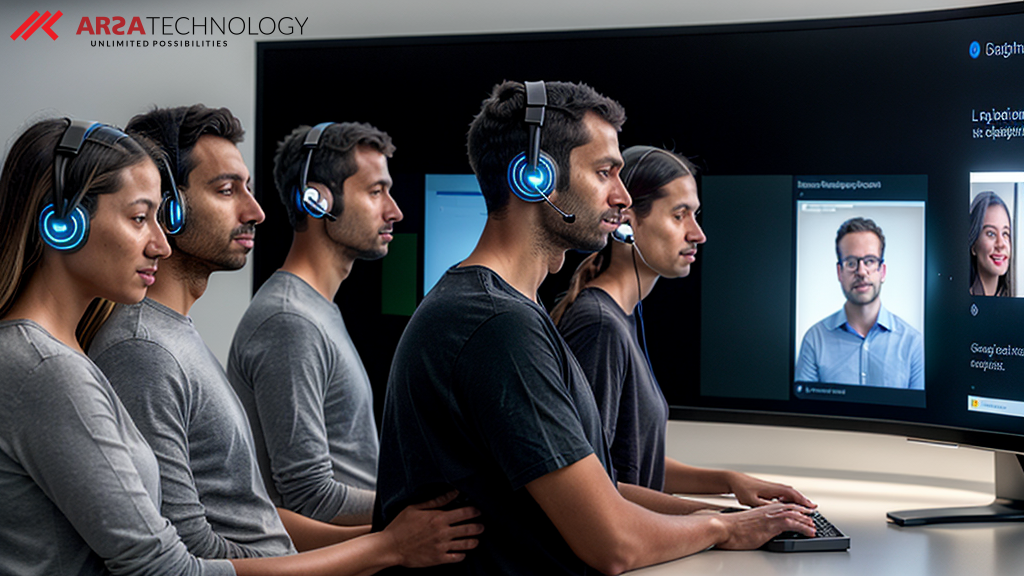Introduction: Overcoming Scalability Challenges in the Accessibility Industry
The demand for inclusive digital experiences is growing exponentially, making accessible IVR (Interactive Voice Response) systems and voice assistants not just a convenience, but a necessity. For individuals with visual impairments, motor disabilities, or cognitive differences, voice interfaces can unlock access to information and services that might otherwise be inaccessible. However, developers and organizations striving to build these critical solutions often face significant hurdles, particularly when it comes to scalability challenges.
Building an IVR or voice assistant that can reliably serve a vast, diverse user base, handle fluctuating call volumes, and maintain high-quality, natural-sounding voice output across multiple languages is a complex undertaking. Traditional approaches can quickly become resource-intensive, leading to spiraling costs, performance bottlenecks, and a compromised user experience. This is where ARSA Technology’s Text-to-Speech (TTS) API emerges as a transformative solution, designed to empower developers in the accessibility industry to build robust, scalable, and truly inclusive voice-driven platforms without the inherent complexities of managing extensive voice infrastructure.
The Pressing Need for Scalable Voice Solutions in Accessibility
Accessibility isn’t a niche; it’s a fundamental aspect of modern technology. Voice interfaces are pivotal in closing the digital divide, offering intuitive interaction for millions. Yet, the very nature of accessibility solutions—serving a wide spectrum of users with varying needs—introduces unique scalability demands:
- High Concurrent Usage: Accessible services often experience peak usage times, requiring systems to handle numerous simultaneous voice interactions without degradation in performance or response time.
- Diverse Language Requirements: A truly accessible solution must cater to a global audience, necessitating support for multiple languages and accents, each with natural, understandable pronunciation.
- Consistent Voice Quality: For users who rely heavily on voice, clarity, naturalness, and consistency of the synthetic voice are paramount. Any robotic or unnatural intonation can hinder comprehension and user trust, especially at scale.
- Infrastructure Overhead: Developing and maintaining in-house voice synthesis engines capable of meeting these demands requires substantial investment in hardware, software, and specialized engineering talent, creating a significant barrier to entry and growth.
- Rapid Iteration and Deployment: The accessibility landscape is constantly evolving, requiring developers to quickly update and deploy new voice content or features. Slow, cumbersome voice generation processes impede this agility.
These challenges can stifle innovation and limit the reach of essential accessibility services. ARSA Technology understands these pain points and offers a sophisticated Text-to-Speech API specifically engineered to address them, enabling developers to focus on core application logic rather than the intricacies of voice infrastructure.
ARSA’s Text-to-Speech API: A Foundation for Unprecedented Scalability
ARSA Technology’s Text-to-Speech API provides a powerful, cloud-based engine that converts written text into highly natural, human-like speech. It’s built from the ground up to handle enterprise-level demands, making it an ideal choice for IVR and voice assistant development in the accessibility sector.
- Elastic Scalability, On-Demand: Our API is hosted on a robust, distributed infrastructure, meaning it can effortlessly scale to meet any demand, from a handful of daily requests to millions of concurrent interactions. Developers no longer need to worry about provisioning servers or managing capacity; the API handles it automatically, ensuring consistent performance even during peak loads. This eliminates the significant infrastructure overhead typically associated with voice solutions.
- Superior Voice Naturalness and Clarity: The core of any effective voice interface is the quality of its speech. ARSA’s TTS API leverages advanced AI and deep learning models to produce voices that are remarkably natural, expressive, and easy to understand. This is crucial for accessibility, where clear articulation directly impacts user comprehension and satisfaction. Robotic or monotonous voices can quickly lead to user frustration and abandonment; our API ensures a pleasant and effective auditory experience.
- Extensive Multilingual and Accent Support: To serve a truly global and diverse audience, multilingual capabilities are non-negotiable. Our Text-to-Speech API supports a wide array of languages and regional accents, allowing developers to create IVR systems and voice assistants that speak to users in their native tongue with appropriate pronunciation and intonation. This expands the reach and inclusivity of accessibility solutions, breaking down language barriers.
- Simplified Integration for Accelerated Development: Integrating complex voice synthesis capabilities can be a daunting task. ARSA’s API is designed for ease of use, providing a straightforward interface that allows developers to quickly incorporate high-quality speech generation into their applications. This dramatically reduces development time and effort, enabling faster iteration and deployment of new features. To understand how straightforward it is to integrate and try the Text-to-Speech API, explore our interactive demo on RapidAPI.
- Cost Efficiency and Predictable Spending: By leveraging a pay-as-you-go API model, organizations can significantly reduce upfront capital expenditures and ongoing operational costs associated with maintaining in-house voice synthesis infrastructure. This allows for more predictable budgeting and frees up resources that can be reallocated to other critical areas of accessibility innovation.
Transforming IVR and Voice Assistants for Accessibility
Let’s explore how ARSA’s Text-to-Speech API directly addresses the challenges and enhances capabilities for building IVR and voice assistant solutions in the accessibility domain:
- Dynamic and Personalized Voice Responses: Instead of pre-recorded, static messages, the TTS API enables dynamic generation of speech based on real-time data. This means IVR systems can provide personalized information, account details, or context-specific guidance instantly, improving efficiency and relevance for users with diverse needs. For example, an accessible banking IVR can read out a user’s specific account balance or recent transactions without needing a human operator.
- Enhanced Navigation and User Experience: Voice assistants built with natural-sounding TTS can offer more intuitive navigation through complex menus or information trees. Clear, consistent voice prompts reduce cognitive load and frustration, making services more accessible for individuals who may struggle with visual interfaces or complex instructions.
- Real-time Information Dissemination: In scenarios requiring immediate updates, such as emergency alerts or public transport announcements, the TTS API can convert text into speech instantly, ensuring that critical information reaches users quickly and audibly. This is vital for public accessibility services.
- Assistive Communication Devices: Developers creating assistive communication tools can integrate the TTS API to provide natural voice output for users who may have difficulty speaking, enabling them to communicate effectively and confidently.
- Educational and Training Platforms: For accessible e-learning platforms, the API can convert course materials, quizzes, and feedback into clear, engaging audio, supporting diverse learning styles and improving retention for all students.
- Global Reach for Inclusive Services: With multilingual support, organizations can deploy a single IVR or voice assistant solution that caters to users speaking different languages, ensuring that accessibility services are truly global and inclusive. This significantly reduces the development and maintenance burden of managing separate voice assets for each language.
For a comprehensive look at our full suite of AI APIs, including our Face Recognition, Face Liveness Detection, and Speech-to-Text APIs, visit our products page. Each API is designed with enterprise-grade performance and ease of integration in mind, further empowering developers to build cutting-edge solutions.
Beyond Scalability: The Business Impact of Quality Voice Synthesis
While scalability is a primary concern, the benefits of ARSA’s Text-to-Speech API extend to tangible business outcomes:
- Improved Customer Satisfaction and Loyalty: High-quality, accessible voice interactions lead to happier users. When an IVR or voice assistant is easy to understand and navigate, users feel valued and supported, fostering loyalty to the service provider.
- Increased Operational Efficiency: Automating voice interactions with reliable TTS reduces the need for human agents for routine queries, freeing up staff to handle more complex or sensitive cases. This leads to significant operational savings and improved resource allocation.
- Competitive Advantage: Organizations that invest in superior, scalable accessibility solutions differentiate themselves in the market. Offering a truly inclusive and efficient voice experience can attract and retain a broader user base.
- Compliance and Ethical Responsibility: Meeting accessibility standards is not just good practice; it’s often a legal requirement. ARSA’s TTS API helps organizations build solutions that are compliant, demonstrating a commitment to ethical and inclusive technology.
Conclusion: Your Next Step Towards a Solution
The journey to building highly scalable, natural-sounding, and truly accessible IVR and voice assistant solutions doesn’t have to be fraught with infrastructure challenges or compromises on quality. ARSA Technology’s Text-to-Speech API offers a robust, flexible, and cost-effective pathway to overcome these hurdles. By leveraging our advanced voice synthesis capabilities, developers in the accessibility industry can create transformative voice experiences that empower users, enhance operational efficiency, and establish their organizations as leaders in inclusive technology.
Embrace the future of accessible voice interfaces. Explore the power of ARSA’s Text-to-Speech API today and begin building solutions that truly make a difference. Should you require tailored solutions or have specific technical inquiries, do not hesitate to contact our developer support team. We are committed to supporting your innovation journey.
Ready to Solve Your Challenges with AI?
Discover how ARSA Technology can help you overcome your toughest business challenges. Get in touch with our team for a personalized demo and a free API trial.







